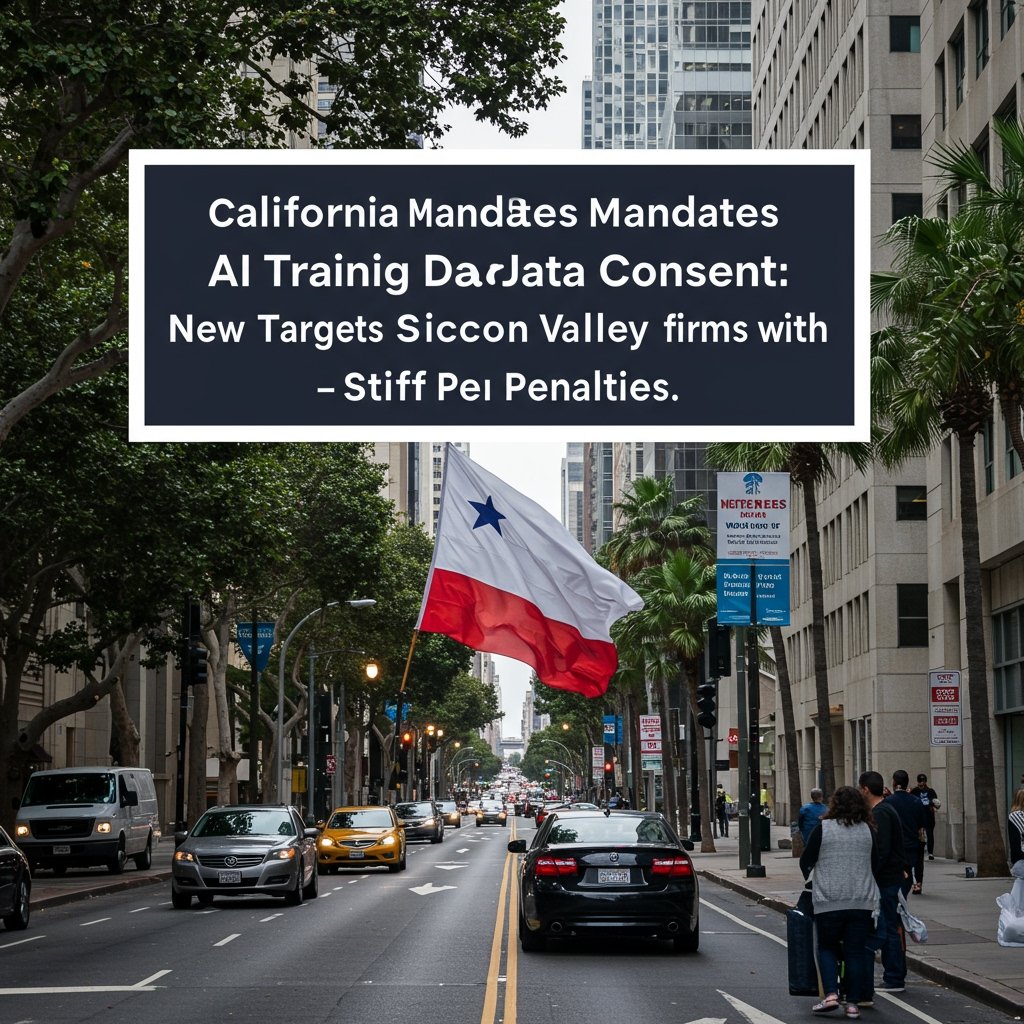California Proposes Sweeping AI Data Privacy Reforms
Sacramento, CA – California, often at the forefront of technology regulation, is once again poised to significantly impact the artificial intelligence landscape with the introduction of groundbreaking data privacy legislation. California State Senator Maria Rodriguez, a Democrat representing Los Angeles, officially introduced Senate Bill 456 (SB 456) on February 5, 2025. This comprehensive act is specifically designed to address the data privacy implications arising from artificial intelligence development practices, with a particular focus on companies headquartered within the state.
SB 456: Mandating User Consent for AI Training Data
The core of SB 456 centers on the explicit use of personal data in the training of AI models. Recognizing the vast quantities of data, much of it personal, required to build sophisticated AI systems, the bill mandates that companies obtain explicit user consent before utilizing an individual’s personal information for this purpose. This marks a significant shift from current practices, where data used in training might be scraped from the public internet, purchased, or gathered through various means, sometimes without direct, specific consent for its use in AI model development.
The proposed legislation aims to provide individuals with greater control over how their digital footprint contributes to the creation of artificial intelligence. By requiring explicit consent, Senator Rodriguez and the bill’s proponents argue that it will foster greater transparency and ethical practices within the AI industry. This provision is seen as a crucial step in empowering consumers in an era where AI’s influence is rapidly expanding across nearly all sectors.
Disclosure Requirements for Training Datasets
In addition to mandatory explicit consent, SB 456 includes a requirement for AI developers to disclose the general source types of the training datasets used for their models. While the bill does not compel companies to reveal proprietary details about their exact data sources, the mandate to disclose general categories – such as “publicly available web data,” “licensed third-party datasets,” “user-submitted content,” or “internal company data” – aims to provide a level of transparency previously unavailable to regulators and the public.
This disclosure requirement is intended to help shed light on the origins of the data feeding AI systems, addressing concerns about potential biases embedded in training data, the use of sensitive personal information, or data obtained through questionable means. By understanding the types of data sources, stakeholders can gain insights into the potential capabilities and limitations, as well as ethical considerations, inherent in an AI model.
Significant Penalties for Non-Compliance
To ensure compliance and act as a strong deterrent against violations, SB 456 includes provisions for significant financial penalties. The bill proposes fines that could potentially reach a staggering “15 million or 3% of annual worldwide revenue, whichever is greater,” for non-compliance with its mandates. This penalty structure is notably robust, designed to impact even the largest technology companies based in California, many of which are global leaders in AI research and development.
The “whichever is greater” clause ensures that the penalty is substantial for both smaller companies with high revenue and larger corporations with vast global income. This approach underscores the seriousness with which the state is approaching AI data governance and signals a commitment to enforcing the proposed regulations effectively. The financial implications of non-compliance are substantial enough to necessitate fundamental shifts in how companies approach data collection, consent management, and AI training processes.
Legislative Journey Begins: Committee Hearing Scheduled
SB 456 is currently navigating the initial stages of the legislative process. It is slated for its first committee hearing before the Senate Judiciary Committee on February 26, 2025. This hearing will provide an opportunity for the bill’s author to present the legislation, for interested parties to offer testimony, and for committee members to debate its merits and potential impacts.
The introduction of the bill and its impending committee review have already sparked considerable debate across the state’s vibrant tech industry. Companies are evaluating the potential operational and financial impacts of the proposed consent and disclosure requirements, while privacy advocates are largely praising the effort to rein in potentially unchecked data practices in AI development. The hearing is expected to draw significant attention from lobbyists, legal experts, and the media as stakeholders voice their support, concerns, and proposed amendments regarding the ambitious legislation.


















